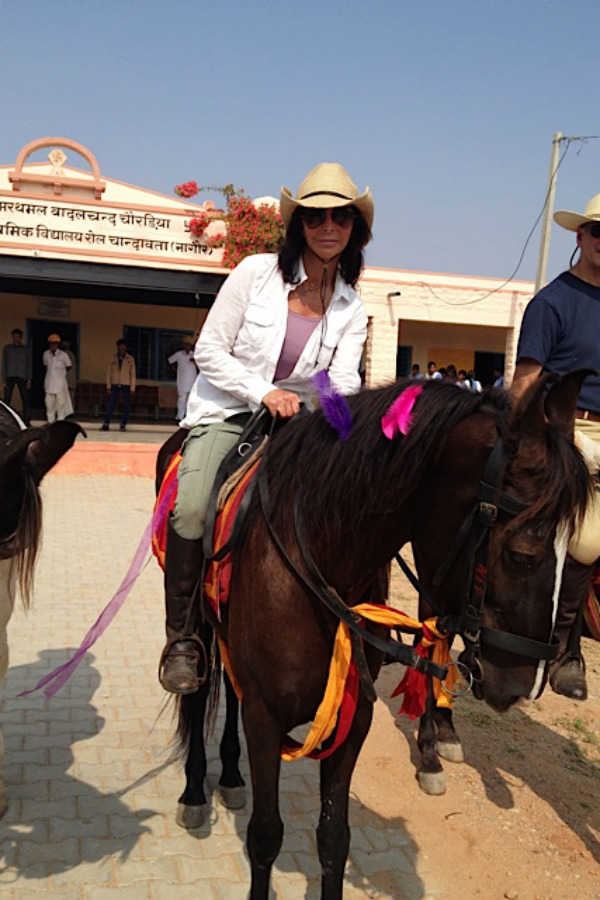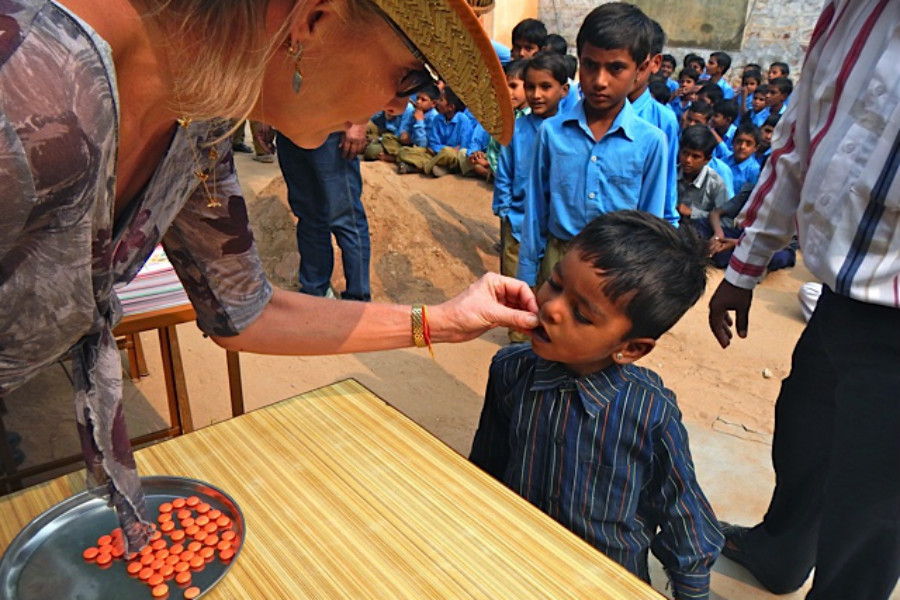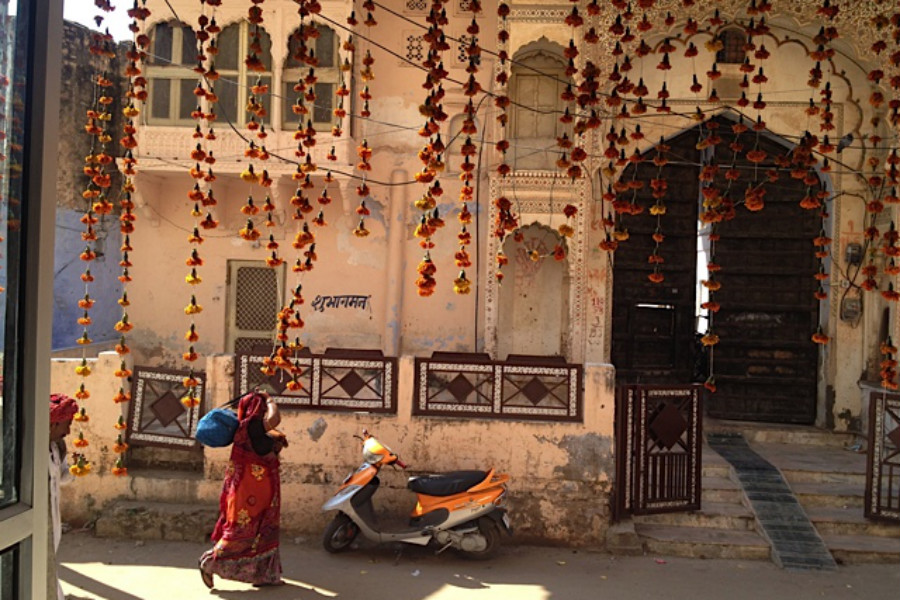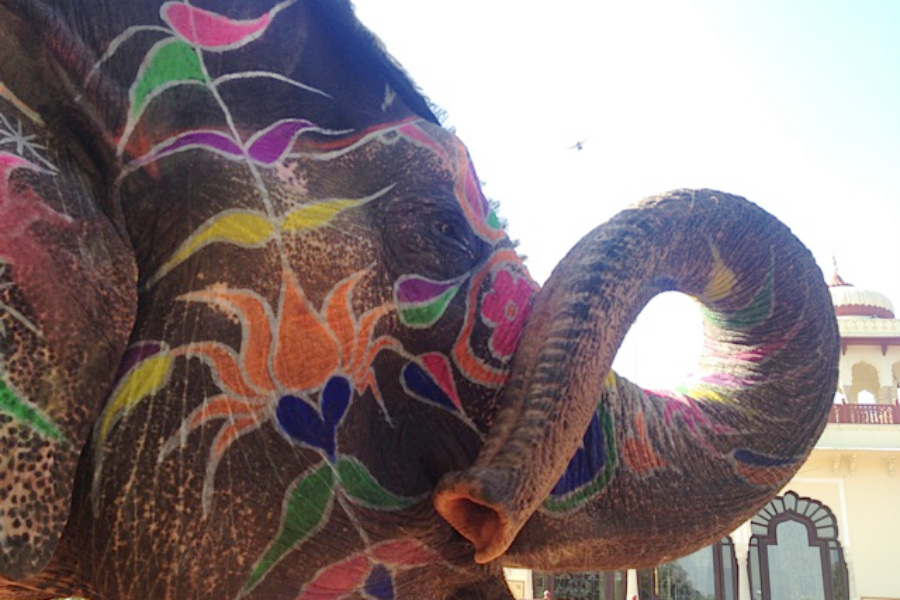Riding Horses for Humanity In India

Desert Ridin'. All Photos by Deborah Orme.
Australian native Deborah Orme stumbled upon Relief Riders International's website on a lark. A riding holiday that allowed her to contribute to a humanitarian organization? Seemed almost too good to be true. Orme embarked on an affair with the sights, smells, and colors of Rajasthan, at the speed of a galloping Mawari horse.
RAJASTHAN, India – I don't know if I can pinpoint a favorite part of my two-week humanitarian horseback ride through the deserts of India. It would be pulling out one thread from a rich tapestry of experiences. The trip taught me to expect the unexpected.
The Mawari horses were the initial drawcard, and to ride them was like a dream. With their curly ears they look like mythological creatures which, historically, they almost are — and they have the spirit to match. Riding through India to meet people from such a variety of communities, from crowded villages to remote rural areas, was an experience I will hold precious all my life.

Deborah meets her horse, Rupraj, and it's love at first sight.
The horses are so much a part of India's history and so revered in this country that riding them gives you an instant connection to the culture. These beautiful creatures amplified every excited wave and greeting from the village children we met on our journey. I fell in love with my black mare, Rupraj, pretty much instantly. Anyone who loves horses will understand how they enrich the experience.
Although the horses stole the show, I was also lucky to be with a great group of people. We were from all ages and walks of life — some people were in their 70s and 80s. (Yes, age is just a state of mind.) Sharing their company while riding by day, and enjoying dinner and drinks around the campfire at night was huge fun. Getting to know them, hearing about their lives, and learning why they decided to join the ride created a bond that none of us foresaw. Drifting off to sleep in our tents was a storybook end to each day.

Administering much-needed vitamin A.
There were so many Kodak moments: Delivering goats to the villages. Greeting children at the schools, some of whom had never seen a westerner before. I can picture buses overflowing with patients rolling up to the clinic, filling the white courtyard with colorful saris and toothless smiles. I treasured the interacations I had with vision-impaired patients about to have their sight restored.
My favorite moment was when a small boy fled in suspicion and tears from a vitamin-A tablet I handed to him. I slowly followed him to the back of the courtyard, his smiling older brother close behind. He stared at me warily as I gently coaxed him to swallow it.
But for sheer beauty, the one moment that was indelible was riding on my Rupraj alongside a lake after watering the horses. It was just about twilight and the light and colors were beyond description. On our right was the still lake, reflecting images of the sunset and the women in saris standing over it to collect water in silver jugs. On our left towered an enormous sand dune, about two or three times the height of the horses. Along the ridge of the dune, bathed in an otherworldly light, children ran, yelled, and laughed. I took in the silhouette of our Mawari horses against the sky in that moment before the moon and stars are visible. Timless and surreal. Those horses served as our ears, eyes, and guides through the unfamiliar desert. The stillness of the lake on one side and the babbling, noisy, river of humanity on the other seemed to represent the contrast that is India.


The beautiful colors of India.
I want to thank Alexander Souri for being inspired to create this organization (you can read more about Alexander's Relief Riders International program on Fathom.) Thanks to Doc for all the hard work in the clinics. Thanks to Ajeet and Ranveer, the horse's owners, for sharing knowledge and magical creatures that you love so much. Thank you to all the grooms who helped care for the horses and to all the guys who cooked our food, set up our tents, and then some. And thank you to the horses, without whom this journey would be impossible.
I have a theory that if we cross paths with someone/something in need, we are meant to do something about it. If nothing is crossing your path, seek out a new one. It's not self-sacrificing. You don't have to be a bleeding heart to give and to make a difference. The gift is yours as well. Through Relief Riders, I indulged my love of horses and travel and made a small contribution to the world.
I anxiously await my next adventure as a Relief Rider in Bikaner. And my long-awaited reunion with good my friends, the Mawari horses.
BUT WAIT, THERE'S MORE
Heroes on Horseback: Relief Riders International
Keeping Haiti in Mind
All Aboard the World's Most Charitable Ship
